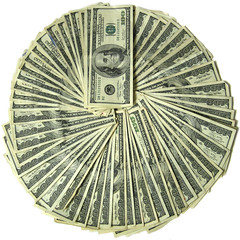Forex (foreign exchange) trading is the act of buying one currency, while at the same time selling another- mainly for the purpose of speculation. Basically, you trade currencies from different countries against each other. This market is the largest is the largest in the world with well over $4 trillion turnovers each and every day.
Forex traders typically choose a currency pair they expect to see change in and place trades according to speculation. This type of trading can be very exciting, and lucrative- but you have to know what you’re doing or you will end up losing instead of gaining. If you’re a beginner, this guide will get you started.
—-
Forex Trading Tips for Beginners
Introduction to Forex Trading
Trading on future price movements of global currency markets can open up multiple trading opportunities for investors.
Foreign exchange, also known as ‘forex’ and ‘fx’, is the exchange of one currency for another at an agreed exchange price on the over-the-counter (OCO) market.
As the world’s most traded market, it has an average turnover in excess of US $4 trillion per day.
How to Trade Forex
Trading forex is the act of simultaneously buying one currency while selling another, primarily for the purpose of speculation.
When trading a currency pair, for example EUR/USD (Euro/US dollar), you are speculating on the first currency in that pair, against the second currency. In this example, that would be whether the euro will rise or fall against the US dollar.
If you think the value of the Euro will fall or ‘depreciate’ against the US dollar, you would go short and sell.
If you think the value of the Euro will rise or ‘appreciate’ against the US dollar, you would go long and buy.
In the event you are correct and the market moves in favour of your position, you will profit.
However, if the market moves against your position, you will incur a loss.
Source
Forex Tutorial: Introduction to Currency Trading
Daily currency fluctuations are usually very small. Most currency pairs move less than one cent per day, representing a less than 1% change in the value of the currency. This makes foreign exchange one of the least volatile financial markets around. Therefore, many currency speculators rely on the availability of enormous leverage to increase the value of potential movements. In the retail forex market, leverage can be as much as 250:1. Higher leverage can be extremely risky, but because of round-the-clock trading and deep liquidity, foreign exchange brokers have been able to make high leverage an industry standard in order to make the movements meaningful for currency traders.
Extreme liquidity and the availability of high leverage have helped to spur the market’s rapid growth and made it the ideal place for many traders. Positions can be opened and closed within minutes or can be held for months. Currency prices are based on objective considerations of supply and demand and cannot be manipulated easily because the size of the market does not allow even the largest players, such as central banks, to move prices at will.
Even seemingly small moves can mean profits and gains in the forex market. Trading on the futures of pricing movements of international currencies will open up many other trading opportunities- for investors that make smart trades at least.
At the very basic level, forex trading is buying and selling opposing currencies at the same time. A common pair is the euro and the U.S. dollar. Say you using the two in trades and you think one is about to fall, or depreciate, against the other- the one you suspect of dropping is the currency you sell, and the one on the rise is the one you buy. Seems simple, but the trick is making smart predictions in order to make a profit and prevent loss.
Daily changes in the market are usually so small that investors must leverage more to make a higher profit- even though higher leverage can be very risky. The availability and liquidity of high leverage have helped stimulate rapid growth in the market- making it an ideal place for traders. Currency pricing is based on supply and demand and positions can be opened and closed in minutes, then stand as they are for months.
To give you the edge over other traders in the market, you can use Capped Variable Spreads, or CVS. Using these will put a stop on the maximum allowed amount of a trade can go before being capped- preventing too much loss.
Are you a player in the forex market? How did you begin trading in this risky market?
Our Rating: [yasr_overall_rating]

